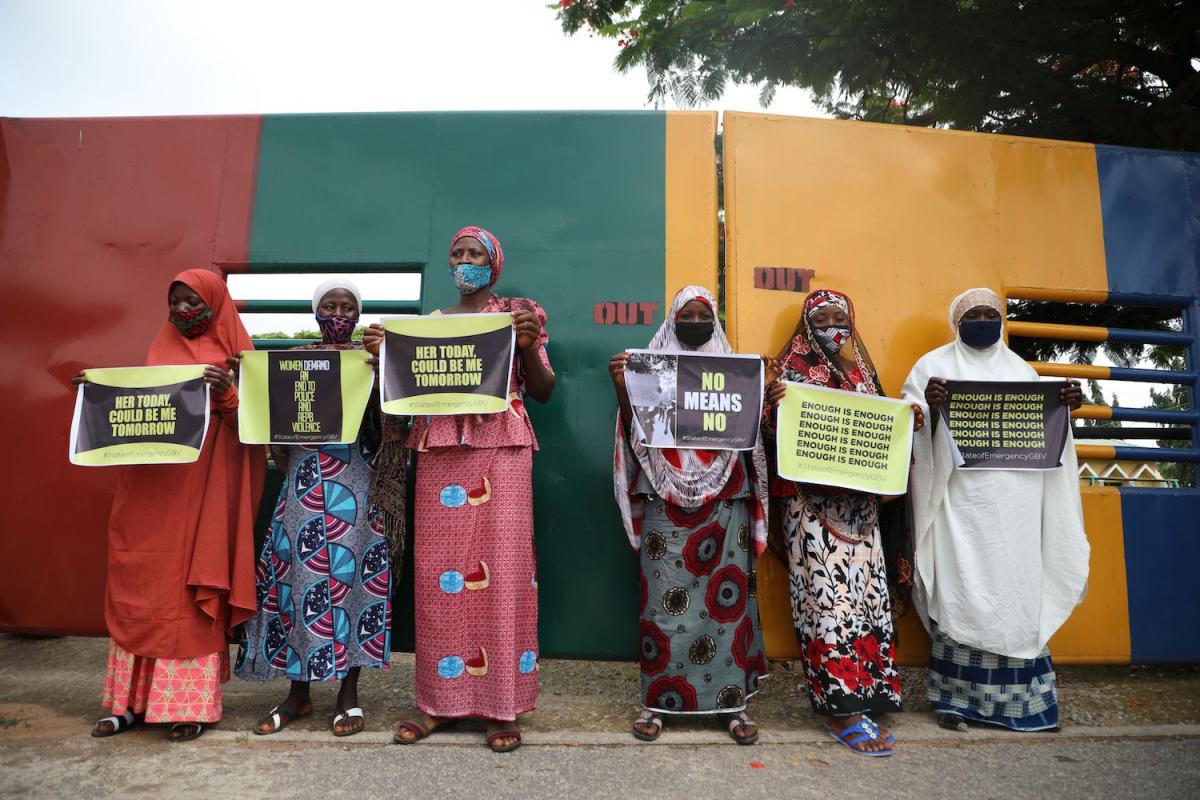There are no products in your shopping cart.
| 0 Items | £0.00 |


EUROPEAN Union (EU) officials have announced plans to help Nigeria establish sexual and gender-based violence (SGBV) courts as part of the ongoing campaign to combat the growing menace of abuse against women.
Nigeria is currently hosting its seventh Sexual Assault Referral Centre (Sarc) network conference organised by Rule of Law and Anti-Corruption (Rolac), top address the issues. Among those expected to attend include the Chief Justice of Nigeria, the chief judge of the Federal Capital Territory, the justice minister, the minister of women affairs, and the minister of humanitarian affairs, disaster management and social development.
Samuela Isopi, the EU ambassador to Nigeria, said this latest support is top on its priority list, adding that since 2016, it has spent over N1bn on the Sarcs. She added that the EU and its partners are stepping up efforts to mobilise action towards fast-tracking the prosecution of offenders and guaranteeing access to justice and remedies for victims of sexual assault.
Ms Isopi said: “The Sarc Network Conference will be followed by mock SGBV courts sitting. This will be modelled on what survivor-centred SGBV court processes and proceedings should look like if they existed in Nigeria. The mock courts will simultaneously sit at Transcorp Hilton Hotel and the Federal Ministry of Justice.”
Also, the EU highlighted that during the 16 days of activism, an annual international campaign to call for the prevention and elimination of violence against women and girls and victims of sexual assault will receive free legal and psychological counselling. This will be under a joint effort by Rolac, the Federal Capital Territory judiciary and the National Agency for Prohibition of Trafficking in Persons.
Ms Isopi noted that despite positive developments in awareness-raising, service provision and data collection, much more needs to be done to address the recognised data gaps. According to her, to underscore the importance of reporting and quality data collection in the fight against SGVB, the Spotlight Initiative is launching a report spotlighting 16 facts about SGBV, co-signed by the EU, the United Nations and the Nigerian government.
“In spite of the remarkable expansion and spread of the Sarc initiative in Nigeria and stronger focus nationwide on the provision of comprehensive medical and counselling services for survivors, cases of sexual assault remains grossly underreported to the centres. Still worse is the proportion of cases that are prosecuted and to make matters worse, even fewer convictions are secured, often after long, tortuous, winding legal processes.
“The EU will continue to engage with the Nigerian government, civil society organisation and all stakeholders to work on the same issue on which both nations have built partnerships. We will continue to support Nigerian civil society organisations, democratic institutions, good governance, gender and a youth agenda and we will continue to support Nigeria to fight the challenges of insecurity, poverty and other regional issues,” Ms Isopi added.
She stressed that fast-tracking access to justice for SGBV survivors has become imperative, as Nigeria is a key EU partner in Africa, bilaterally and beyond. According to Ms Isopi, the EU considers Nigeria a very important ally on a number of issues including post-Covid reconstruction, climate change amongst others.